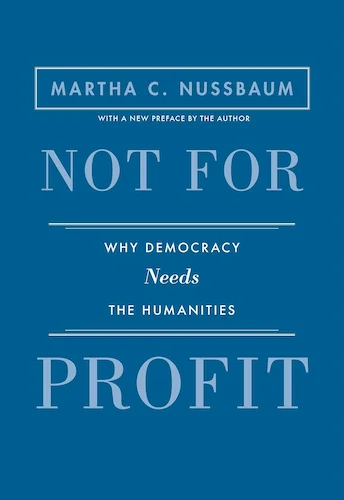The paradox of relevance: Philosophy’s Crucial Role Amid AI Dominance
Why is studying philosophy vital in the age of AI? This question gains urgency as artificial intelligence rapidly reshapes how humans define knowledge, judgment, and meaning. In an era marked by profound automation, philosophy might seem increasingly irrelevant or even quaint.
Yet, paradoxically, the opposite is true. Philosophy retains and perhaps amplifies its relevance precisely because it cultivates capacities—critical judgment, ethical reasoning, epistemic awareness—that AI systems cannot authentically replicate. The deeper cost of automation lies less in what machines achieve and more in what humans may gradually unlearn.
The importance of studying philosophy in the age of AI manifests vividly: philosophy questions what others assume to be self-evident.
Across various educational systems, philosophy programs and the broader humanities face downsizing or outright elimination. This institutional retreat is driven primarily by utilitarian metrics tied to employability and short-term economic benefits.
Philosophy and the Erosion of Critical Thinking
As recent debates around the defunding of arts and humanities programs suggest, particularly in countries like Australia and the UK, critical disciplines are being systematically deprioritized in favor of instrumental, skills-based education tailored to perceived market needs and technological trends. This process signals a deeper shift in the purpose of education.
Martha Nussbaum, in her seminal work Not for Profit: Why Democracy Needs the Humanities, describes this as a “silent crisis” in which nations “discard skills” crucial to democracy “as they thirst for national profit.” In her view, the erosion of philosophy and the humanities undermines not only critical thinking but also empathy and democratic agency—capacities that cannot be replaced by any form of technical expertise.
Recent studies demonstrate how AI is actively engaged in addressing global challenges, including climate change, public health, and social justice, fields that traditionally require deep ethical reflection and philosophical inquiry.
The provocative assertion by investor and former Facebook executive Chamath Palihapitiya—that philosophy may offer more durable value than purely technical skills—captures a significant shift. Voices from industry and academia increasingly converge around a once-counterintuitive proposition: the relevance of philosophy in the age of AI lies precisely in those uniquely human faculties which resist automation. The real question is not whether AI can simulate traditional reasoning tasks, but whether those tasks capture the full complexity of human thought.
Why Critical Thought Goes Beyond AI Computation
Large language models like ChatGPT have convincingly demonstrated that tasks previously considered hallmarks of advanced reasoning—such as interpreting texts or generating arguments—can indeed be performed by AI systems.
Yet as Michael Peters and colleagues argue in their analysis of ChatGPT-4’s implications for education, these systems deliver results without justification, mimicking coherence rather than producing genuine epistemic grounding. Such models calculate rather than truly know, pattern-match instead of deeply interpret.
This distinction matters profoundly. Critical thinking involves much more than generating plausible solutions or coherent summaries; it demands hesitation, judgment, and epistemic responsibility. Thought in ethical, political, or legal contexts requires awareness of ambiguity, nuance, and historical context—qualities far beyond computation.
Liz Jackson warns against “the new positivism,” emphasizing that AI systems risk reviving a mechanistic conception of rationality, precisely at a moment when the humanities had started dismantling it. Philosophy resists that intellectual closure by insisting upon justification before assertion, question before answer, and reflection over mere output. Thus, the significance of philosophy today is its steadfast defense of what genuine thought entails.
AI’s Impact on Human Epistemic Agency
Undeniably, AI is reshaping the cognitive tasks that have traditionally been nurtured in philosophy classrooms—such as argument analysis, logical reasoning, and essay composition. Yet, rather than signaling the obsolescence of philosophy, this shift highlights the need for philosophy to reaffirm and redefine its purpose.
As AI takes over more routine cognitive functions, there is an increasing risk of delegating epistemic authority entirely to machines. This shift extends beyond the potential displacement of jobs to a deeper erosion of our epistemic agency—the gradual loss of the human capacity for judgment and reflective autonomy.
The real risk, then, is not that machines will think for us, but that we might lose touch with the very essence of thinking itself. In this context, the most pressing mission of philosophy is to preserve and strengthen our epistemic agency.
Philosophy’s Role in Challenging Tech Ideology
A compelling critique emerges from scholars, who describe modern tech culture not only as an economic domain but as a kind of secular theology, complete with rituals (product launches), prophets (tech CEOs), dogmas (scalability as truth), and an eschatological horizon (the singularity).
If technology indeed shapes contemporary metaphysics, philosophy becomes indispensable—less a luxury than an essential civic and intellectual resource.
It remains a crucial space to interrogate claims often uncritically accepted within tech culture—optimization, disruption, and datafication.
Precisely here, the importance of studying philosophy in the age of AI manifests vividly: philosophy questions what others assume to be self-evident. It allows humans to remain epistemically vigilant in an increasingly automated world.
Conclusion: The Enduring Necessity of Human Judgment
Philosophy may not promise immediate returns measured strictly by economic utility or immediate employability. Yet, it offers something enduringly valuable: the ability to orient oneself critically in an era of profound technological and social transformations. While some questions have no definitive answers, they still demand thoughtful reflection; some problems defy simple solutions, requiring instead careful resistance and judgment.
In the age of AI, the importance of philosophy is precisely its refusal to reduce intelligence to mere computational output. Philosophy reminds us that thinking is never merely transactional; it is a reflective, critical, and profoundly human practice—one that resists reduction to computation and remains vital to our shared intellectual and moral life.











